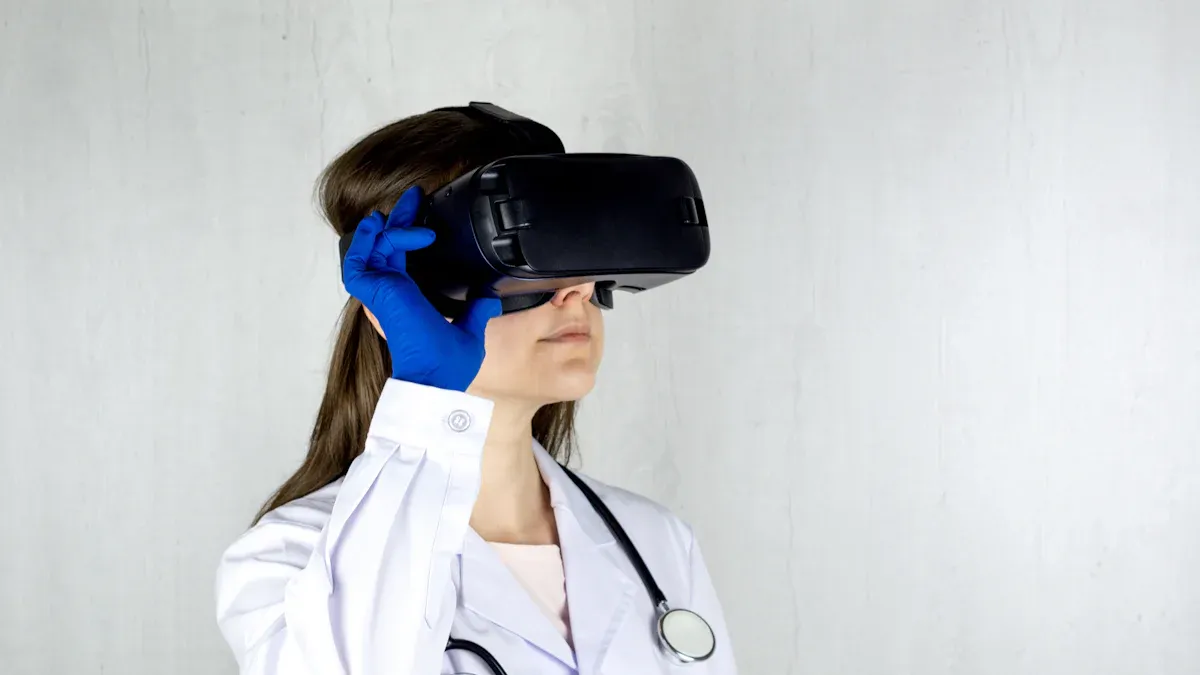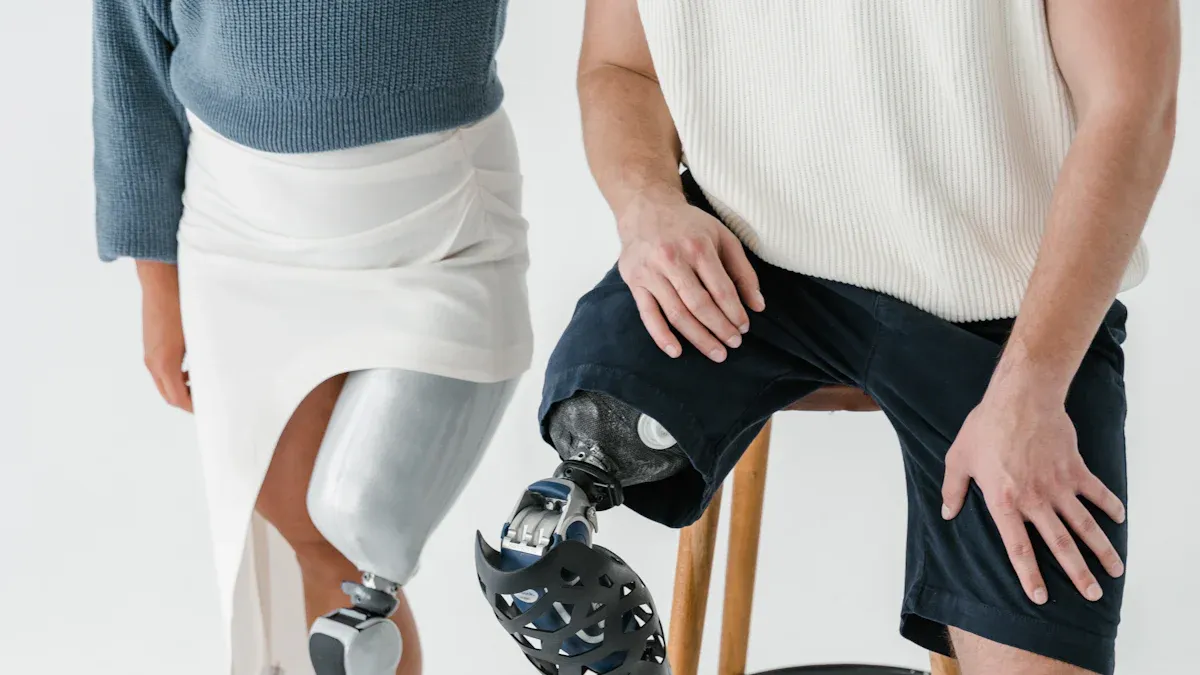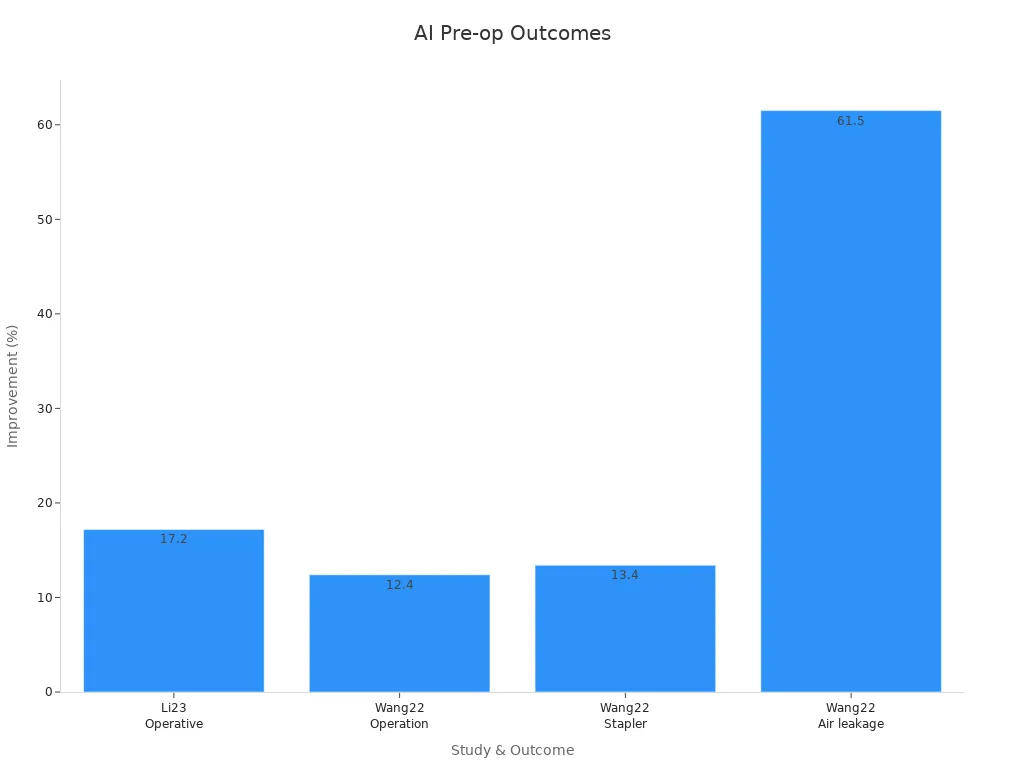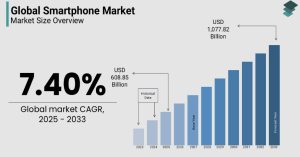
You are witnessing a transformative era in healthcare, where medical AI is reshaping diagnostics, treatment, and patient care. AI systems now analyze complex data faster than ever, enabling precise treatment plans. For instance, predictive models in chronic disease management anticipate flare-ups, while AI-powered remote monitoring systems reduce hospital readmissions by 40%, improving outcomes.
Key Takeaways
-
AI improves medical tests by combining different types of information. This helps doctors find problems faster and more correctly.
-
Predictive tools help spot diseases early. This lets doctors give custom care and plan ahead for better health.
-
AI helps scientists find new medicines quicker. It makes treatments work better and focus on the right problem.
AI Transforming Diagnostics

Multimodal Data Integration for Comprehensive Assessments
You rely on accurate diagnostics to make informed healthcare decisions. AI in medical diagnostics is revolutionizing this process by integrating multimodal data, such as imaging, lab results, and patient history, into a unified assessment. This approach provides a comprehensive view of your health, enabling faster and more precise diagnoses.
AI-powered diagnostic tools excel at analyzing complex datasets. For example, algorithms in dermatology now match or outperform specialists in identifying skin lesions, including melanoma. Similarly, AI-based systems have achieved 90% sensitivity in breast cancer detection, surpassing radiologists' 78%. These advancements highlight how AI diagnostics streamline workflows, reduce errors, and improve patient satisfaction.
Tip: Multimodal data integration not only enhances diagnostic accuracy but also reduces the time required for assessments, ensuring timely interventions for critical conditions.
Predictive Analytics Enhancing Disease Detection
Predictive analytics is transforming how you detect and manage diseases. By analyzing patterns in patient data, AI diagnostics identify high-risk individuals and predict disease progression. This allows healthcare providers to implement proactive measures tailored to your needs.
For instance, Johns Hopkins Hospital uses AI-driven predictive analytics to forecast readmission risks and disease outcomes. These systems combine AI with dynamic models, improving accuracy and adaptability over time. The table below illustrates the impact of predictive analytics on disease detection:
|
Evidence Description |
Impact on Disease Detection |
|---|---|
|
Enables proactive measures to mitigate risks and improve patient outcomes. |
|
|
Informs targeted interventions for high-risk patients |
Allows for personalized care programs tailored to individual patient needs. |
|
Combines AI with predictive analytics for dynamic systems |
Enhances accuracy and adaptability in predicting health risks over time. |
Predictive analytics empowers you to take control of your health by enabling early interventions and personalized care plans.
FDA-Approved AI Diagnostic Tools
FDA-approved AI-powered diagnostic tools are setting new benchmarks for safety and performance in healthcare. These tools undergo rigorous evaluation to ensure they meet clinical standards. However, some studies indicate that data supporting their safety and effectiveness remains limited.
|
Study Title |
Findings |
|---|---|
|
Data lacking for AI-enabled medical devices cleared by FDA |
Indicates insufficient clinical data supporting safety and performance of these tools. |
Despite these challenges, AI in medical diagnostics continues to evolve. The global market for AI diagnostics is projected to grow at a CAGR of 22.5%, reaching $4.72 billion by 2029. This growth is driven by government initiatives, increased demand for AI tools, and the availability of large datasets. As these tools improve, you can expect more reliable and accessible diagnostic solutions.
Note: While FDA approval ensures a baseline level of safety, ongoing research and clinical trials are essential to validate the long-term effectiveness of AI-powered diagnostic tools.
Personalized Medicine with AI
AI-Driven Drug Discovery and Development
AI is transforming drug discovery and development, making the process faster and more efficient. You benefit from this innovation as it accelerates the creation of treatments for complex diseases. Traditional drug development often takes years, but AI reduces this timeline by analyzing vast datasets to identify potential drug candidates.
AI systems analyze genomic data to uncover genetic factors that influence disease susceptibility. For example:
-
Machine learning techniques, such as hierarchical clustering, stratify patients with ALS into molecular and phenotypic subgroups.
-
Integrative analysis of omics data, imaging, and clinical information enhances the understanding of individual disease states.
These advancements allow researchers to design stratified treatment approaches tailored to specific patient groups. By leveraging AI, pharmaceutical companies can also predict drug efficacy and safety earlier in the development process. This reduces the likelihood of costly failures during clinical trials.
Tip: AI-driven drug discovery not only speeds up the process but also ensures that treatments are more targeted, improving their effectiveness for you and other patients.
Digital Twins for Tailored Treatment Plans
Digital twins are revolutionizing personalized medicine by creating virtual replicas of your body. These models capture detailed information, including your genetics, medical history, lifestyle, and even environmental factors. With real-time data updates from wearable sensors and medical devices, digital twins provide a dynamic view of your health.
This technology enables healthcare providers to simulate treatment options and predict outcomes before implementing them. For instance:
-
Digital twins use real-time analytics to monitor your health continuously.
-
They allow for precise adjustments to treatment plans, improving outcomes and reducing risks.
Imagine a scenario where your doctor uses a digital twin to test how a specific medication will interact with your unique physiology. This approach minimizes trial-and-error treatments, ensuring you receive the most effective care from the start.
Note: Digital twins represent a significant leap forward in personalized medicine, offering you tailored solutions that adapt to your changing health needs.
Benefits of Precision Medicine in Healthcare
Precision medicine, powered by AI and digital therapeutics, is reshaping how you receive care. Unlike traditional approaches, which often rely on generalized treatments, precision medicine focuses on your unique characteristics. This includes your genetic makeup, lifestyle, and specific health conditions.
The benefits of this approach are profound:
-
Improved Treatment Outcomes: Tailored therapies address the root cause of your condition, increasing the likelihood of success.
-
Reduced Side Effects: Personalized treatments minimize adverse reactions by considering your unique biology.
-
Cost-Effectiveness: By targeting therapies more accurately, precision medicine reduces unnecessary treatments and hospitalizations.
Digital therapeutics play a crucial role in this transformation. These software-based interventions complement traditional treatments, offering you tools to manage chronic conditions, improve mental health, and enhance overall well-being. For example, AI-powered digital therapeutics can monitor your progress and adjust recommendations in real time, ensuring optimal results.
Callout: Precision medicine, combined with digital therapeutics, empowers you to take control of your health, offering solutions that are as unique as you are.
AI in Wearable Technology and Remote Monitoring

AI-Powered Wearable Devices for Continuous Monitoring
AI-powered wearable devices are transforming how you monitor your health. These devices track vital signs like heart rate, blood pressure, and sleep patterns in real time, offering insights into your well-being. By continuously analyzing data, AI identifies subtle changes that might signal health risks.
For example:
-
Monitored speech metrics reveal significant correlations with cognitive decline.
-
Patients with over 15% monthly anomalies in speech metrics face a 3.2-fold higher risk of cognitive decline escalation within six months.
-
Continuous monitoring slows cognitive decline by 30–40% in prodromal Alzheimer's disease.
-
Real-time alerts increase social activity frequency, reducing psychosocial risks associated with dementia.
These advancements empower you to take proactive steps to maintain your health and delay the progression of chronic conditions.
Early Intervention Enabled by Real-Time Data Analysis
Real-time data analysis enables early intervention, helping you address health issues before they become severe. AI processes data from wearable devices to detect patterns and anomalies, allowing healthcare providers to act quickly.
Imagine a scenario where your wearable device detects irregular heart rhythms. AI analyzes this data and alerts your doctor, enabling timely treatment. This approach reduces hospital admissions and improves outcomes. Continuous monitoring systems, such as the AD-Cloud, demonstrate this impact. Over five years, they could delay nursing home admissions by 8–12 months and reduce societal costs by ¥50,000 per patient annually.
By leveraging AI, wearable technology ensures you receive care when it matters most.
Case Studies of Wearable Technology in Patient Care
Wearable technology has already made a significant impact on patient care. These devices provide continuous monitoring, promote preventive healthcare, and empower you with personalized health data.
|
Impact Area |
الوصف |
|---|---|
|
Continuous Monitoring |
Wearable devices track health parameters like heart rate and blood pressure 24/7, enabling early detection of health issues. |
|
Preventive Healthcare |
Wearables incentivize health-focused behavior, potentially reducing hospital visits and readmissions. |
|
Patient Empowerment |
Access to personalized health data allows individuals to make informed decisions about their health. |
These case studies highlight how wearable technology improves your quality of life and supports better health management.
AI Enhancing Surgical Procedures
Autonomous Surgical Robots Revolutionizing Operations
Autonomous surgical robots are transforming how surgeries are performed. These robots use advanced algorithms to assist surgeons with precision and consistency. You benefit from their ability to reduce human error and improve surgical outcomes. For example, robots equipped with AI can analyze real-time data during procedures, ensuring optimal decision-making.
A study comparing metrics between attending and trainee surgeons highlights the impact of AI-enhanced surgical tools. The table below shows how these tools improve performance:
|
Metric |
Attending Surgeons |
Trainee Surgeons |
Correlation with OSACSS |
|---|---|---|---|
|
Eye Positioned Centrally Within Microscope View |
Higher |
Lower |
Negative |
|
Eye Decentration |
Lower |
Higher |
Negative |
|
Total Instrument Path Length |
N/A |
N/A |
N/A |
These advancements ensure that even less experienced surgeons can achieve better results, ultimately improving patient safety.
AI-Assisted Preoperative Planning for Better Outcomes
AI-assisted preoperative planning is revolutionizing how surgeries are prepared. By analyzing patient data, AI creates detailed surgical plans tailored to your unique anatomy. This reduces complications and enhances efficiency.
Studies show significant improvements in surgical metrics with AI-driven planning. For instance:
-
Operative time decreased by 17.2% in one study.
-
Air leakage ratios dropped by 61.5%, improving recovery times.
The chart below illustrates these improvements:

Additionally, AI-driven 3D reconstruction achieves 85% accuracy in identifying anatomical variants, compared to 78% with traditional methods. This ensures that your surgery is as precise and effective as possible.
Real-World Applications in Robotic Surgery
Robotic surgery is no longer a futuristic concept. It is already improving outcomes in hospitals worldwide. These systems assist with complex procedures, such as cardiac and neurological surgeries, by providing unparalleled precision.
For example, robotic systems can stabilize instruments during delicate operations, reducing tremors and enhancing accuracy. Surgeons also benefit from enhanced visualization, allowing them to navigate intricate anatomical structures with ease. These innovations lead to shorter recovery times and fewer complications for you as a patient.
Tip: When considering surgery, ask your healthcare provider about facilities equipped with AI-enhanced robotic systems for optimal care.
Overcoming Challenges in Medical AI
Addressing Ethical Concerns and Data Privacy Issues
Ethical concerns and data privacy issues remain significant challenges in medical AI. You might worry about how your sensitive health data is collected, stored, and used. These concerns can affect your trust in AI-based healthcare tools. For instance, higher data privacy concerns have been shown to negatively impact acceptance of AI tools (β = −0.20, p = 0.038).
Healthcare providers must prioritize transparency and consent. Clear communication about how your data is handled can alleviate these concerns. Additionally, robust encryption and anonymization techniques ensure your information remains secure.
“AI models trained on potentially biased labels may perpetuate and amplify not only differential misclassifications and substandard care practices based on these social factors, but also the original cognitive biases in its own predictions and recommendations.”
By addressing these ethical challenges, AI can gain your trust and improve healthcare outcomes.
Mitigating Bias in AI Algorithms
Bias in AI algorithms can lead to unequal healthcare outcomes. For example, if an AI system is trained on biased data, it may provide suboptimal care for certain groups. This perpetuates existing disparities in healthcare.
Developers must focus on creating diverse and representative datasets. Regular audits of AI systems can identify and correct biases. You benefit from these efforts as they ensure fair and accurate medical decisions. Collaboration between AI developers, healthcare professionals, and ethicists can further reduce bias and improve the reliability of AI tools.
Navigating Regulatory and Implementation Barriers
Regulatory and implementation barriers slow the adoption of medical AI. You might notice that some AI tools take years to reach clinical settings. This delay often stems from the need to meet strict safety and efficacy standards.
Streamlining regulatory processes can accelerate the availability of AI innovations. Governments and healthcare organizations must work together to create clear guidelines. Training programs for healthcare professionals can also ease the integration of AI into clinical practice. These steps ensure you receive the benefits of AI without unnecessary delays.
Future Trends in Healthcare Technology
Legislative Efforts Supporting AI in Medicine
Legislative efforts are shaping the future of AI in healthcare by ensuring its ethical and effective use. States across the U.S. are introducing policies to regulate AI applications in medicine. For example, California's Senate Bill 1120 mandates human review for medical necessity decisions, while Illinois requires clinical peer reviews for adverse outcomes. These measures aim to balance AI's efficiency with patient safety.
Transparency is another focus area. Maryland now requires payors to submit quarterly reports on AI usage, including denial rates. Similarly, New York mandates the submission of AI algorithms and training datasets to state departments. These efforts ensure that AI systems remain accountable and unbiased.
These policies reflect the growing recognition of AI's potential in healthcare. By addressing ethical concerns and promoting transparency, they pave the way for safer and more effective AI applications in medicine.
AI Chatbots Transforming Patient Care
AI chatbots are revolutionizing how you access healthcare services. These virtual assistants provide 24/7 support, answering questions, scheduling appointments, and even offering mental health counseling. Their ability to process natural language makes them user-friendly and accessible.
For instance, AI chatbots can guide you through symptom checkers, helping you decide whether to seek medical attention. They also enhance patient engagement by providing personalized health tips and reminders. This continuous interaction improves your overall healthcare experience.
The healthcare sector trends indicate a growing reliance on AI chatbots. Nearly 90% of patients have experienced some form of remote healthcare, and chatbots play a significant role in this shift. By offering immediate assistance, they reduce the burden on healthcare providers and improve patient satisfaction.
Holistic AI Agents for Comprehensive Healthcare
Holistic AI agents are taking healthcare technology to the next level by integrating multiple functions into a single platform. These systems combine diagnostic tools, treatment planning, and patient monitoring to provide comprehensive care.
For example, AI systems like Google Health's have demonstrated superior accuracy in detecting early-stage breast cancer. They also classify brain tumors from MRI images in minutes, significantly reducing wait times. Additionally, these agents support early disease detection, improving outcomes and lowering long-term costs.
|
Evidence Type |
الوصف |
|---|---|
|
Enhanced Diagnostic Accuracy |
AI systems like Google Health's have shown superior accuracy in detecting early-stage breast cancer. |
|
Faster Diagnosis |
AI can classify brain tumors from MRI images in minutes, significantly reducing wait times. |
|
Early Disease Detection |
AI detects early signs of diseases, improving patient outcomes and reducing long-term costs. |
|
Drug Development Efficiency |
AI can cut early-stage drug development time by up to 15 times and reduce costs by up to 70%. |
|
Patient Engagement |
AI chatbots provide 24/7 access to health information and support, enhancing patient interaction. |
Holistic AI agents represent the future of healthcare technology. By streamlining processes and improving accuracy, they ensure you receive the best possible care.
Medical AI is reshaping healthcare by integrating advanced solutions into everyday practices. You now benefit from more accessible, accurate, and efficient care. These technologies improve diagnostics, personalize treatments, and enhance patient outcomes. By combining health metrics with economic evaluations, medical AI ensures better resource allocation and cost-effective interventions, paving the way for a transformative future in medicine.
التعليمات
What are the main benefits of AI in healthcare?
AI improves healthcare by enhancing diagnostic accuracy, personalizing treatments, and enabling real-time monitoring. It also reduces costs and increases accessibility for patients worldwide.
How does AI ensure patient data privacy?
AI systems use encryption, anonymization, and secure storage to protect your data. Developers follow strict regulations to ensure compliance with privacy standards.
Will AI replace doctors in the future?
AI supports doctors by providing insights and automating tasks. It enhances decision-making but cannot replace the human expertise and empathy essential in healthcare.
Tip: Stay informed about AI advancements to understand how they can improve your healthcare experience.







